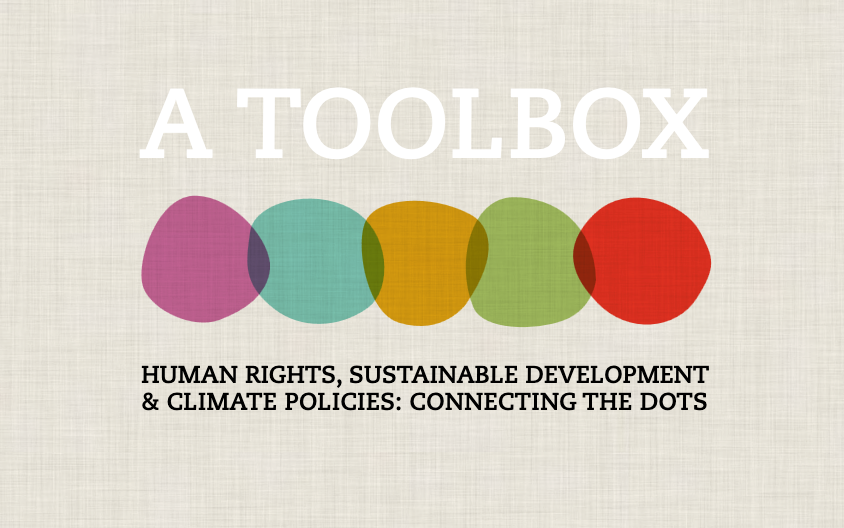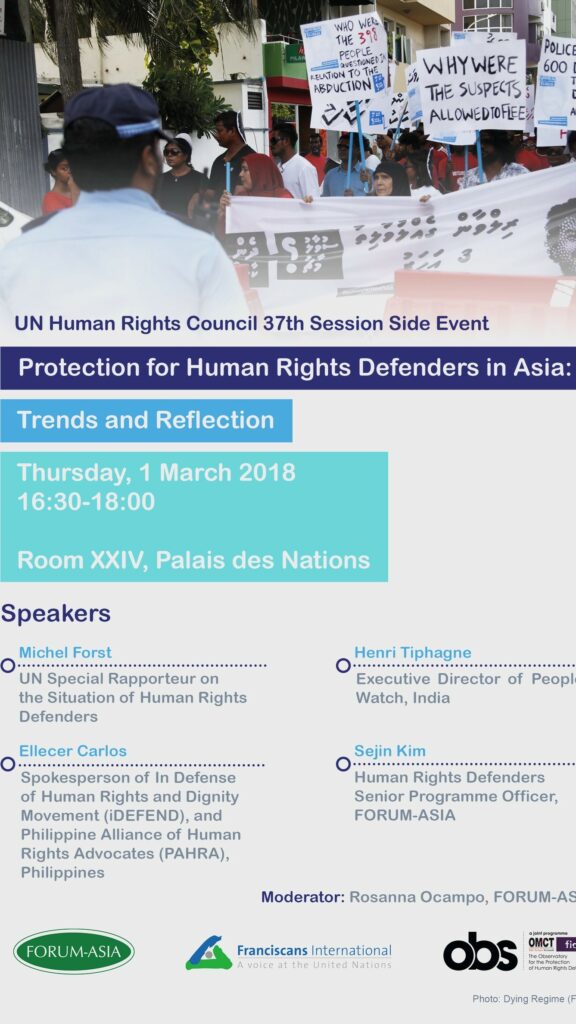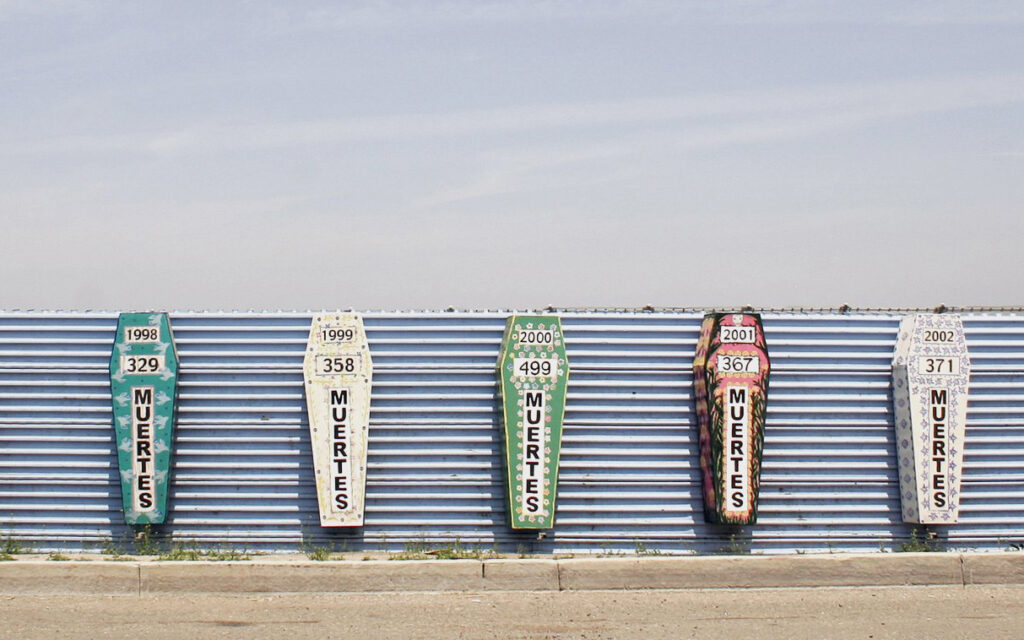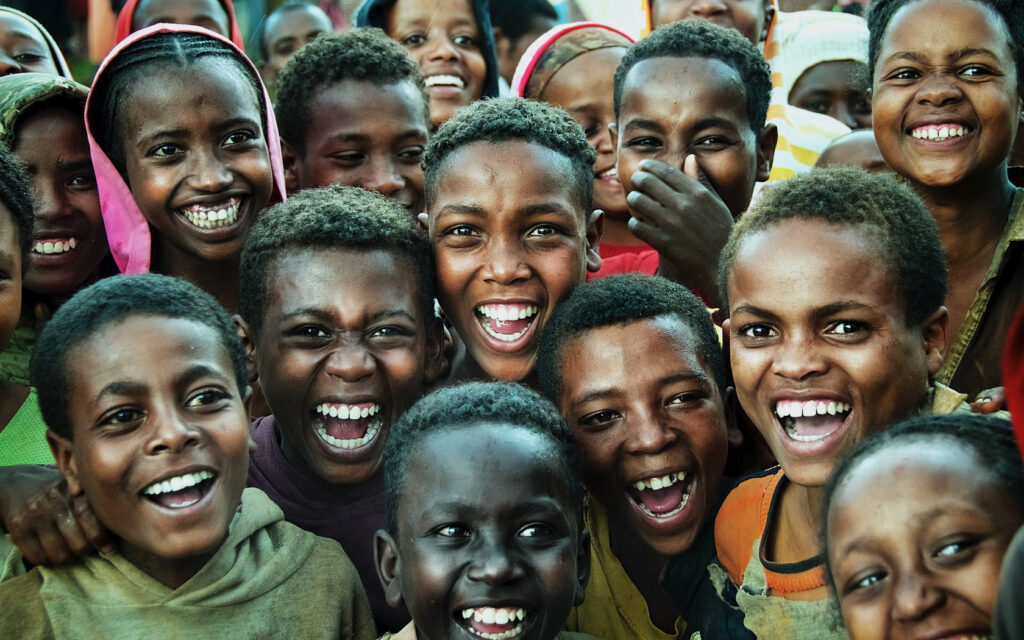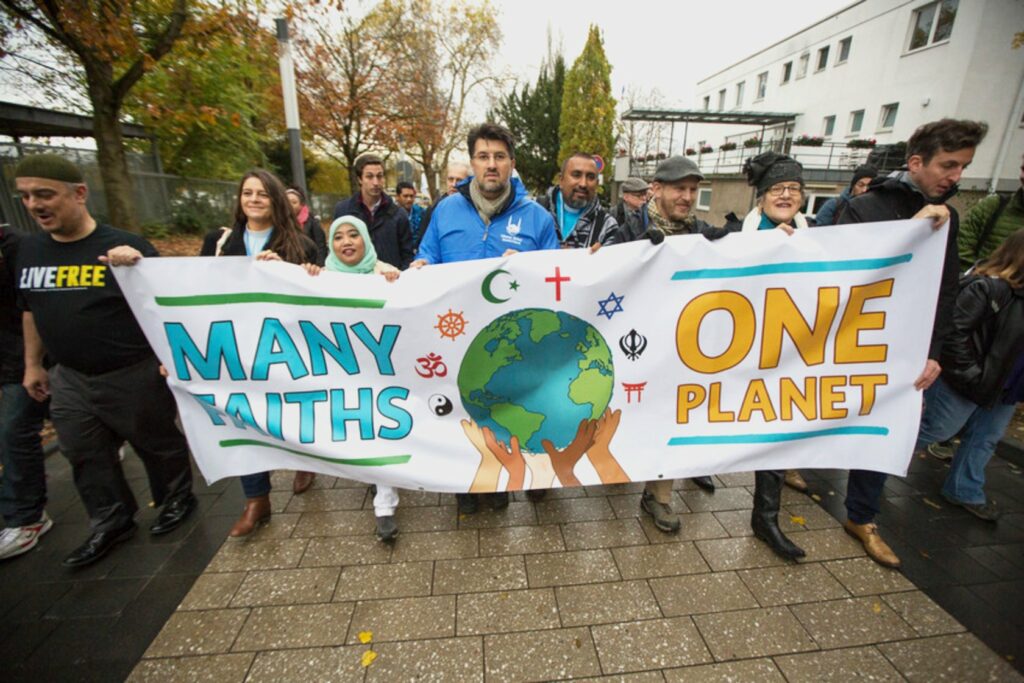Ruki Fernando is a soft spoken and well-articulated man. A long-time human rights defender in his home country, Sri Lanka, he has documented abuses such as land grabbing, enforced disappearance, and infringements on the rights of displaced and resettled people. Ruki has written on these subjects for online journals and national press, he has given interviews, and has partnered with international non-governmental organizations to bring these human rights abuses to the ear of international policymakers.
We have reached out to Ruki, a long-term partner of Franciscans International, to better understand the Sri Lankan political situation. The picture that emerged is one of a complex and multifaceted country that is still transitioning from three decades of war and an unresolved ethnic conflict, where the post-war government has stagnated and the recent local elections have re-drawn the map of power.
The interview has been edited for clarity and length.
What are the issues underpinning the current political situation in Sri Lanka?
Sri Lanka went through a long war, from which we are still trying to recover. As we do that, we are also trying to address the root causes, and the consequences, of this protracted violence.
The complexity of the situation can be understood if one looks at the issues that need to be addressed at once. Human rights violations are part of our daily life, like caste-based discrimination, gender-based discrimination, economic injustice, etc. or the issues of ethnicity and faith, but these deserve a discussion of their own.
What you mean by that?
Sri Lanka’s ethnic map is composed of different groups. The largest is Sinhalese and there is a significant Tamil minority, a Muslim minority, and a variety of other communities. Of course, this has created tension, as some groups have found themselves marginalized and not treated equally.
The same issues appear between religious faiths. Buddhists are the majority (70.2% according to the 2011 census); there is a significant number of Hindus (12.6%), 7.4% Christians, and 9.3% Muslims, some atheists, and some indigenous communities. This has also created some tension, especially in the past six years, when religious minorities have experienced violence and discrimination—particularly Evangelical Christians and Muslims.
So, as you can see we are trying to deal with a lot of different human rights issues at once. Of course, internationally, what received more attention was the war and the resulting human rights violations.
What is the Sri Lankan Government doing to address this?
The war ended in May 2009, with the victory of the government’s military over the rebel group called the Liberation Tigers of Tamil Eelam (LTTE), which claimed to represent the Tamil communities in northern and eastern Sri Lanka. After the end of the hostilities, there was a dictatorship until 2014. When this authoritarian rule ceased in 2015, a little more space for freedom of expression, assembly, association, and general dissent and resistance freed up.
The government that came to power in January 2015 made a series of promises at the UN Human Rights Council in Geneva, regarding what they were going to do with the causes and the consequences of the civil war.
To deal with the causes of the war, for example, the Government announced the drafting of a new Constitution, which will enable power sharing, or autonomy, for the northern and eastern provinces where the Tamil are the majority.
To deal with the consequences of the war, the Government promised to establish a Truth Commission, to understand what happened during the war and an Office of Missing Persons, to discover the fate and whereabouts of persons who had disappeared. It also promised to create an Office of Reparations and a Special Court with the participation of foreign judges, prosecutors, lawyers, etc.
In a way it is politically significant that these promises concerning Sri Lankans were not made in Sri Lanka, but at the UN in Geneva. It implies that if it were not for the international pressure, maybe these promises would not have been made. It also suggests that that these promises were primarily aimed at appeasing the international community.
In any case, the realization of these promises has been exceptionally, painfully slow, dragging on for two and half years. In some instances, non-existent.
The small gains we can see are extremely important—although rarely related to the war. For example, in the last local government election held on February 10th, some provisions to ensure women’s political participation were introduced. In Sri Lanka, women’s political participation remains very low. In Parliament, participation is below 6% and is only 2% in local governments. In the past election a law was passed to ensure women’s representation of at least 25% at the local level. Now, it is not clear whether it will actually be 25%, but it surely will not be 2% anymore.
What are the issues that you think are key in dealing with the consequence of the war?
If we are serious in effectively and fully dealing with the years of conflict we cannot ignore the issue of land.
Can you please elaborate?
During the conflict in the north and east of the country, most of the traditional land of the Tamil, but also Muslim and Sinhalese people, was taken away by the military. People were forcibly displaced, and even after the end of the conflict, in 2009, the land was not given back.
During the war the military grew in strength and size (supposedly around 300.000 units circa, a very large number for a country of 21 million people). At the same time, the military’s social and political status also grew in importance in the Sinhalese community: they are recognized as war heroes.
So, trying to hold the military accountable for any atrocity that they have committed—which is plenty in Sri Lanka’s case—became politically and socially very controversial. If you accuse the military of war crimes or human rights abuses—like displacing entire sections of the population and grabbing their land—many Sinhalese Buddhists would tell you that they are war heroes and not war criminals.
The military have assumed this aura of importance as the group that has saved the motherland and thus deserves immunity. This socio-political understanding of their role, coupled with their actual military power, are the enabling factors that have allowed them to hold onto so much land.
Throughout this process, and in the almost ten years that have passed since the end of the conflict, the military has engaged in economic activities in the occupied lands in the northern provinces. These span from agriculture, to running preschools, hotels, shops, restaurants, airlines, tourist centers, war memorials, etc.
Meanwhile, the Internally Displaced Persons (IDPs) whose land has been occupied by the military have tried to regain their ancestral lands through protests, petitions, official requests, and meetings with Ministers and government officials, but little has come of it. In the fall of 2015, the government promised to release some of this land; and indeed, some of these lands have been released in the past two and a half years. But a very significant amount remains in the hands of the military.
It is really important to understand what land means to people in Sri Lanka’s rural areas. It is not property that can be valued only financially. It is people’s primary access to agriculture and fishing—the basis of their livelihood—and it also has a significant socio-cultural aspect. It is on this land, in fact, where your church is, where you ancestors are buried, where your community is based. So you can understand how compensating a displaced family with another piece of land, perhaps in a different area of the country altogether, is not going to work.
Of course, land issues and displacement do not only involve military abuses of the Tamil population. The LTTE also evicted large Muslim communities from their lands in the north. As a result, forcibly displaced Tamils occupied (or purchased at below market value prices) lands belonging to Muslim communities. In time, this created serious friction between these two communities.
Are there other issues that you think are of particular concern?
There are many, in addition to the issues of militarization and land that I have mentioned before. For example, finding persons who have disappeared, release and justice for political prisoners, and memorialization of those fallen during the war.
Another major issue, which I have directly suffered from, is the Prevention of Terrorism Act (PTA), a law that has been used to suppress different forms of dissent.
This was initially adopted in the late 1970s and it was supposed to be temporary. It has always been used to repress any form of dissent because it takes away basic checks and balances when people are detained, and gives a great deal of freedom to the police.
A large number of politicians, journalists, Tamil civilians, and others have been arrested under that law. They have been in detention for a number of years without their cases being concluded. This law allows for preventive detention up to 18 months, but this can be renewed an indefinite number of times. There are examples of people awaiting trial for 15 years.
I was also arrested under that law in 2014, but thanks to organizations like Franciscans International and many other international and local organizations I was quickly released. However, after four years I am still under investigation, regardless of the fact that no charges have been brought against me. It’s just to keep something hanging over my head.
What’s the life of a Human Rights Defender in Sri Lanka?
There have been times, especially right after the war, where I felt at risk. During those periods I had to leave the country for months on end. During and after the war, I was scared to travel to the war-affected areas alone, and there were times where I was scared to walk alone anywhere at night. Socially and personally it was a severe curtailment of my life.
Now, although I am still under investigation under the PTA, I do not feel so scared, I feel much freer. I walk around on my own; I travel mostly by bus and train. But I’m aware and seriously concerned about reports of assaults, death threats, intimidation, and surveillance against activists in the last year, many of whom I know.
However, there is a second aspect to this. I am ethnically Sinhalese, so when I talk about the rights of Tamil people I am considered a traitor and a terrorist supporter even by some relatives and friends. That is sometimes more difficult to deal with than what governments can do to you.
Similarly, when, as a man, I advocate for women’s rights, I am not seen very well by most men. Equally, as a Catholic promoting progressive laws on abortion or LGBTIQ rights, people within my religious community have issues with my work.
There are many prejudices if you are trying to stand up for human rights. Meeting the high expectations from survivors of violations, victim’s families and fellow activists is also very difficult. Coping with prejudices and meeting expectations have been challenging, and at times more difficult to deal with than security-related things. But I believe in what I am doing and I hope to continue human rights activism.
For more information about Ruki Fernando’s work and contacts check out his blog: https://rukiiiii.wordpress.com


